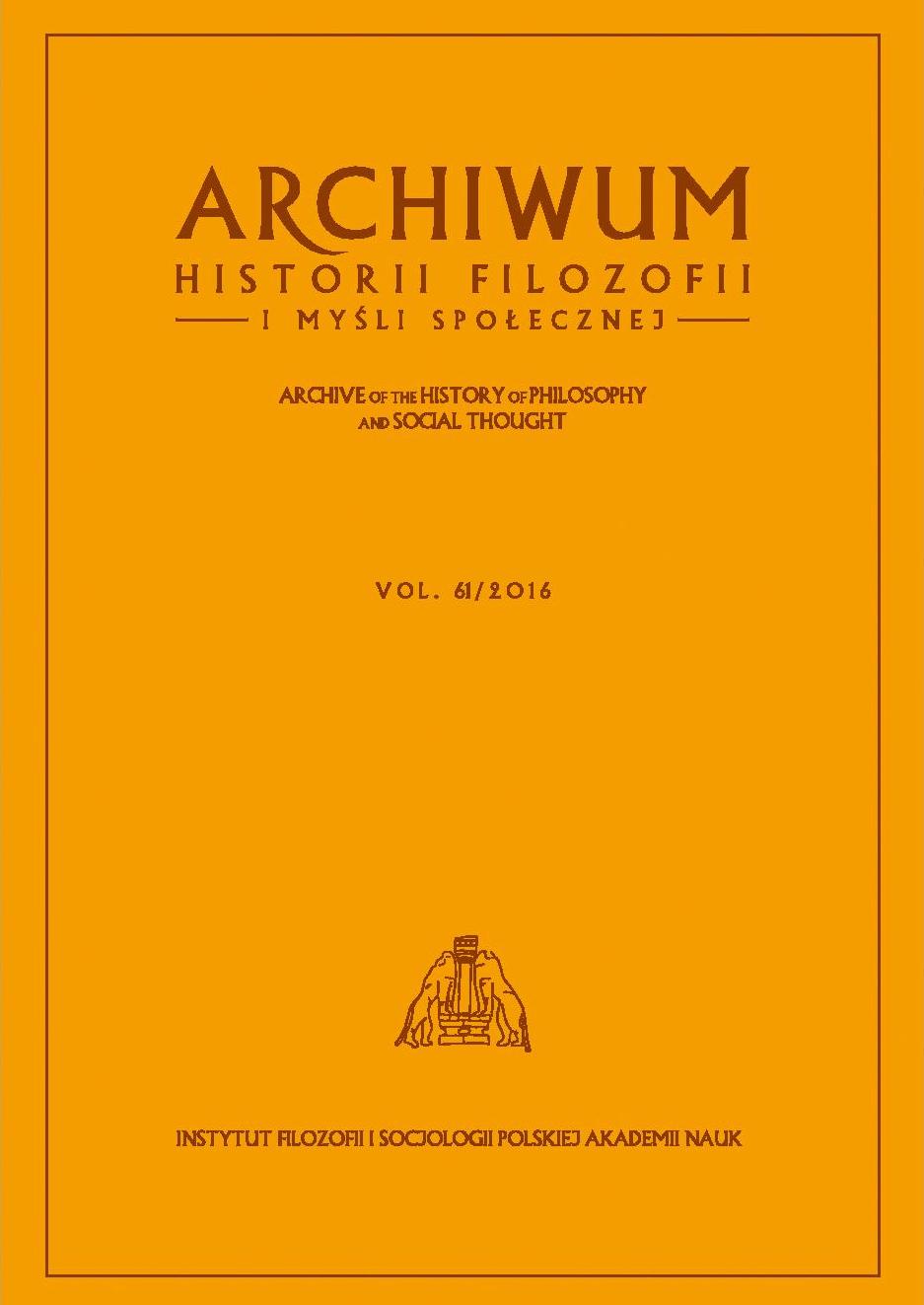Forma, natura, ogólność. Aleksandra z Afrodyzji koncepcja uniwersaliów
Form, Nature, Universality. Alexander of Aphrodisias’ Doctrine of Universals
Alexander of Aphrodisias’ Doctrine of Universals
Author(s): Tomasz TiurynSubject(s): Philosophy, Philosophical Traditions, Ancient Philosphy
Published by: Instytut Filozofii i Socjologii Polskiej Akademii Nauk
Keywords: Alexander of Aphrodisias; history of ontology; history of epistemology; the problem of universals;
Summary/Abstract: The paper continues the presentation of the doctrine of universals formulated by Alexander of Aphrodisias. It focuses on Alexander’s crucial notion, namely the notion of a defi nable nature which is indiff erent with respect to universality, i.e. it is indiff erent to (a) being universally predicated and (b) being actually present in many things; this notion has inspired later thinkers (Avicenna, Aquinas, Duns Scotus) to formulate the conception of the so called “third nature”. The paper also addresses the ontological side of Alexander’s conception of universal and considers it in the context of Alexander’s doctrine of substantial form. The thesis of this paper is that according to Alexander’s conception the universal, when existing in individuals, is itself individualized and singularized. Th us, Alexander doctrine of universals cannot be seen as a typical in re realism, which allows for the immanent existence of universals without further qualifi cation. Th e paper presents fi rst Polish translations of key texts on universals by Alexander (such as InTop. 355,12–24, Qu. I.11, Qu. II.28).
Journal: Archiwum Historii Filozofii i Myśli Społecznej
- Issue Year: 61/2016
- Issue No: 61
- Page Range: 59-77
- Page Count: 19
- Language: Polish

